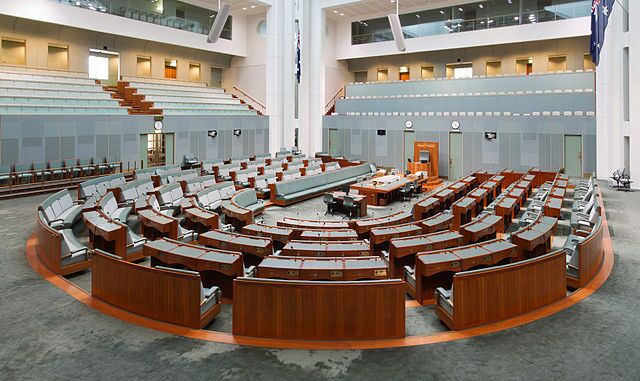Comprehending Australia's 2001 Law on Interactive Gambling
Australia's foremost regulation on online wagering is encapsulated in the Interactive Gambling Act of 2001, commonly referred to as the IGA. This foundational piece of legislation has been modified over the years to adapt to the changing landscape of internet gaming. The law covers all forms of digital gaming, whether accessed via a browser or through mobile applications.
As the key legislative framework for online games of chance, comprehending the Interactive Gambling Act of 2001 is vital for both service providers and players pursuing gambling activities. Licensed gaming operators must remain vigilant to comply with this law, particularly given the frequent shifts in regulatory standards.
Online Casinos Falling Within the Scope of the Interactive Gambling Act
While numerous local authorities are responsible for licensing and overseeing gambling establishments, the IGA extends to any casino that wants to operate online and engage with Australian consumers. Moreover, the Australian Communications and Media Authority (ACMA) oversees a registry of all approved gambling entities across the Commonwealth.
These licensed platforms can accept Australian players and their wagers. Any non-registered or unlicensed online casinos are in breach of the law, leading to their prohibition and potential blocking from providing gambling services. Specifically, the IGA addresses the following gambling formats:
- Digital casinos, which include slot games and traditional table games.
- Live, in-game sports betting.
- Sports betting platforms that do not hold an Australian license.
- Betting on any lottery’s outcome.
Thus, the IGA stands as the overarching authority capable of limiting any form of online gambling in Australia.
Amendments to Australian Gambling Legislation Made in 2017
Amidst rising concerns over unauthorized 'offshore' casinos and betting outlets, the Australian government significantly revised the IGA in 2017. This amendment law introduced directives for internet service providers to manage gambling services that violate national guidelines.
Internet service providers now need to furnish their subscribers with tools to block known illegal gambling websites, preventing access to unauthorized gambling content. This measure shifts the responsibility from the gambling operators to ISPs, reducing consumers’ access to offshore gambling sources.
Other reforms from the 2017 amendment included measures on lending practices of gambling companies. With few exceptions, these firms cannot offer credit lines to their patrons and must ensure that players wager only from deposited funds.
The amendment further escalated legal repercussions for entities promoting unlawful gambling. Individuals risk not only legal action but also substantial financial penalties, reaching up to $1,665,000, with corporations facing fines as high as $8,325,000.
Ensuring Consumer Safety Under the 2001 Interactive Gambling Act
Come 2019, the Australian government expanded consumer protections under the IGA by launching a nationwide self-exclusion registry. This initiative provides a streamlined way for individuals battling gambling problems to voluntarily block themselves from online betting activities. Registered individuals are precluded from accessing gambling services offered by all licensed operators.
Previously, much of the self-exclusion process was fragmented across various state lists or individualized company options. With the new national register, consumers can secure a universal safeguard against legal online gambling.
The self-exclusion service forms part of broader consumer protection efforts. The Australian Department of Social Services developed a National Consumer Protection Framework for Online Wagering (NCPF), designed for uniform enforcement across Australia. The framework comprises ten measures aiming to mitigate the adverse effects of online gambling.
These protocols incorporate diverse elements, referencing both the initial IGA legislation and amendments such as self-exclusion and the prohibition of extending credit. The NCPF demands more, like straightforward account closure procedures and restrictions on incentive practices. For instance, operators are forbidden from offering rewards to lure players into account creation and must limit promotional credits from being repeatedly played before withdrawal eligibility.
One goal of the NCPF is for businesses to adhere to standardized language regarding the risks of gambling. This aims to remove ambiguity in promotional material and clearly communicate the potential negative consequences.
An additional provision under the NCPF mandates pre-determined deposit limits for players before engaging in any gambling activities. These caps can't be adjusted instantaneously, granting a buffer period for players to reconsider before committing more funds.
Together, the original IGA and the ten comprehensive guidelines of the NCPF create a closely controlled environment for online gambling throughout Australia.
Ian Thompson, a long-time poker enthusiast and now a knowledgeable writer in the online casino scene, shares his insights on game strategies and psychological aspects. His articles on Australian Gambling Online are rich with practical tips for players.

